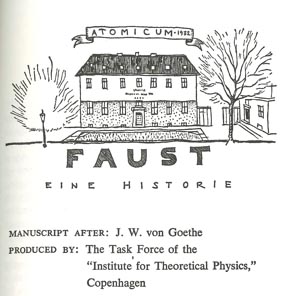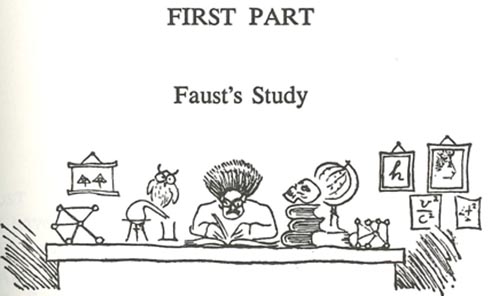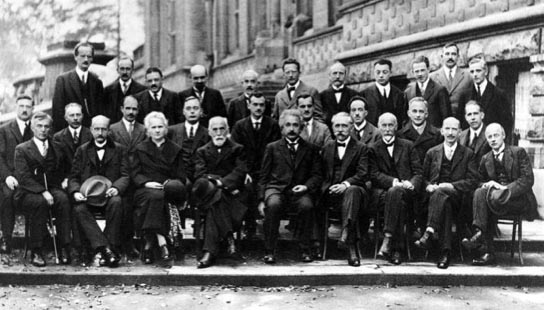Report on the April 18 2020 FHP Executive Committee Meeting
by Dwight E. Neuenschwander, FHP Secretary/Treasurer
The Executive Committee (EC) meeting was to occur on this day at the APS April Meeting in Washington, DC, but the April Meeting was cancelled due to the Covid-19 pandemic. Nevertheless, the EC meeting proceeded online at the scheduled time.
Participants:
Paul Cadden-Zimansky (Chair) Daniel Kennefick (Past Chair)
Michel H. P. Janssen (Vice Chair)
Joseph D. Martin (Chair-Elect)
Paul H. Halpern (Vice Chair-Elect) Virginia Trimble (Councilor)
Melinda Baldwin (Member-At-Large)
Liu Jinyan (incoming Member-At-Large)
Katemari D. Rosa (Member-At-Large)
Douglas Stone (Member-At-Large)
Chanda Prescod-Weinstein (Member-At-Large)
Rebecca Ulrich (Member-At-Large)
Audra J. Wolfe (Member-At-Large)
D. Ed Neuenschwander (Secretary/Treasurer)
Greg Good (AIP Center for History of Physics)
Robert Crease (outgoing FHP Newsletter editor)
Don Salisbury (incoming FHP Newsletter editor)
Brian Schwartz and Smitha Vishveshwara (guests invited to discuss the FHP-sponsored plays)
The meeting was called to order by the Chair at 2:00 PM EST. Liu Jinyan asked if the Covid-19 upheaval would disrupt the annual $20K that the Forum receives from APS. At the APS Leadership Convocation of Jan. 29-Feb. 1, everyone was informed that APS has a comfortable surplus, but an official answer to Jinyan’s important question was not known by April 18, 2020.
Elections
For the upcoming election, the FHP needs Vice-Chair and two At-Large candidates, Daniel Kennefick described three sources of nominations: Persons asked to run, self-nominations, and persons nominated by a third party. Although established physics history scholars have tended to dominate candidate slates, the EC welcomes more diversity. With the desire to include early career EC members, graduate student who are FHP members are welcome on the slate of candidates. Virginia Trimble reminded us that, as voted by APS Council, all Units are required to have at least one Early Career or Student member on their executive committee. Paul Cadden-Zimansky and Audra Wolfe suggested the EC membership strive for half early career and half senior members. Chandra Prescod-Weinstein commented that deep interest in physics history “coming from the physics side” may be a more important qualification than formal training in the history of physics. Finalists in the FHP Essay Contest would be a good source of approachable early career candidates.
Program Committee Report
The Program Committee Report was presented by Joseph Martin. The pandemic created the overriding issue: no meetings will go ahead for the duration. Some sessions have fallen by the wayside for now, but other sessions must be held because of the Pais Prize. Until recently APS allocated to Forums three sessions per meeting, but now a Forum’s number of invited sessions is tied to its number of contributed papers. APS now uses the session numbers in year N + 1 to determine the number of invited sessions for year N. More contributed papers should therefore be encouraged. Under this new policy FHP lost one session for the March meeting, although the original schedule for April “held steady.” Don Salisbury asked whether the Pais Prize presentation will be delayed. Martin replied “No, but we owe Dieter Hoffman [the 2020 winner] a trip to an APS meeting.” Whether there will be in 2021 two joint Pais Prize presentations, or one at the March meeting and the other at the April meeting, remains to be determined. Trimble asked if FHP had co-sponsors for the Cosmology session. The reply was the Division of Gravitational Physics was “involved,” and the Division of Applied Physics was consulted but “not officially co-sponsors.”
Councilor’s Report
As FHP’s representative on the APS Council, Trimble reported that APS is solvent but faces major uncertainties. The Bridge Program is at risk; REU’s are facing increased demand but diminished supply; some graduate students are not able to get international visas before the fall semester (APS has asked Congress to arrange extensions); undergraduates applying to grad schools are uncertain about TA funding. Some grad students face serious struggles even without a pandemic; e.g., in some locations over half of one’s TA salary goes towards rent; in shared apartments both students can be forced out if one loses their job; many dormitories have been closed and some students are reduced to living in their cars. TAs are not always paid through the summer, producing effects that vary from annoying to disastrous. Trimble suggested that returned conference registration fees be moved from the “travel” line in one’s grant budget to the “student support” line. Wolfe commented that students’ economic difficulties do not correlate with resource allocation—"does APS understand what’s going on?” Prescod-Weinstein asked if APS advocates for Federal financial bailouts on behalf of higher education. The reply came that APS has had good luck negotiating with Congress, but less so with states.
Pandemic Challenges
These woes let to a continuation of pandemic discussion. Salisbury asked how the pandemic has affected FHP’s mission. Wolfe asked about plans for next year’s meetings should the pandemic continue. Salisbury suggested virtual FHP meetings. Trimble remarked how, ironically, the cancelled 2020 April Meeting had more registrants than any other April meeting. Cadden-Zimansky turned the discussion of the pandemic to FHP’s response. The Forum has about $10K in funding for a project to record the history of the pandemic. Trimble suggested a way be found to let people tell their stories—perhaps a repository for thousand-word essays, analogous to the Oral History interviews archived by the AIP Center for the History of Physics.
Other Officer Reports
Cadden-Zimansky reported briefly on the 2020 APS Leadership Convocation, held in Washington D.C. Jan. 29-Feb. 1. The Convocation’s theme was “APS and the ethics of gender discrimination.” Neuenschwander then reported on FHP finances. FHP receives $20K from APS every January. In 2020 approximately another $2K YTD was received, but as in years past the FHP found itself in December 2019 with a deficit (~$4K) which carries into to the following year as a debit.
The FHP Newsletter
Robert Crease has stepped down as editor of the FHP Newsletter, having recently become Chair of his department. Donald Salisbury is the new editor. He said that upcoming articles will describe FHP events that would have occurred in the March meeting, notifications of what was cancelled or rescheduled, and the announcement of the next Pais Prize award. Cadden-Zimansky announced that the seldom-used newsletter editorial board has been disbanded. Salisbury added that the book review feature still exists and obituaries will be added.
FHP-Sponsored Plays
FHP-sponsored plays was the next topic on the agenda. The plays began in 2013, and four plays have been produced so far. They cost about $5K/yr for actor payments, venue rental, travel for organizers, and publicity. Because the plays consume about a quarter of the FHP annual budget, continuing the program requires EC approval. There was skepticism expressed about FHP sponsorship in the absence of a mission statement for the program with clearly articulated objectives. It was suggested that if outreach is the motive for offering he plays, less expensive alternatives exist. Kennefick spoke up for the plays, saying they make a case for the study of the history of science. Play organizers Brian Schwartz and Smitha Vishveshwara reported that typical attendance is 100-200, consisting mostly of younger people, noting the value of the Q&A sessions following performances. Kennefick remarked that an attendance of 80-100 persons in Unit invited sessions is considered a good turnout. Salisbury observed that by being held in the evenings the plays do not conflict with other APS meeting events. Neuenschwander asked if the plays have been given ample opportunity to show what they could do if they were emphatically supported, musing that one famous play at a physics conference has come down to us, the brilliant spoof “The Copenhagen Faust”, presented at the Bohr Institute in 1932 (Figure 1).


Figure 1. Images from Thirty Years that Shook Physics by George Gamow. (In the Copenhagen version of Faust, the Task Force responsible turned Faust into Paul Ehrenfest, The Lord was Niels Bohr, Mephistopheles was Wolfgang Pauli, and Gretchen was the neutrino.)
Schwarz is stepping down from managing the plays, and Vishveshwara will take his place if FHP continues sponsorship. The March 2020 meeting was to have seen a performance of David Cassidy’s “Einstein’s Wife,” but it may be rescheduled for the March 2021 meeting in Nashville and the April meeting in Sacramento. After being temporarily tabled, upon returning to the plays after dealing with other business a motion and vote produced the result that FHP will not discontinue sponsorship, at least not yet, but give the plays a fighting chance by (1) increasing promotional support for the plays, perhaps linking them to a session; (2) delegate to those responsible for the plays the task of drafting a statement of objectives articulating programmatic goals; and (3) collect more data about attendance, audience demographics, etc. Trimble suggested that if the plays are to be open to the general public, they need a presence on social media—APS marketing should be on board.
Essay Contest
This 2019 essay contest saw 17 submissions, more than usual, and the quality of the finalist essays was very good. The contest offers a venue for discovering graduate students with a passion for the history of physics. The EC was unanimous in its consensus to continue the essay contest program. Discussion of the essay contest focused on logistical issues, such as: Should the 2500 word limit be reconsidered? Should the September 1 submission deadline be changed, since that falls so near the beginning of the fall term? Cadden-Zimansky opined that FHP should be receiving more submissions from grad students in the Science & Society or philosophy communities, in addition to those in physics. He suggested aiming for a deadline around October 1. No motion was forthcoming to move the due date or change other rules, but issues were usefully aired that need more data and more thought.
The Quantum Century Celebration
The Quantum Century celebration planned for 2025 was the next agenda topic. The APS working group charged with public information on this project is presently in limbo due to staff departures in the public outreach office. Trimble observed that representatives of small countries where developments in quantum mechanics originated (e.g., Denmark) would be the best messengers to take a Quantum Century proposal to UNESCO, adding that international APS Councilors should be involved. Halpern suggested that Quantum Century organizers reach out to the children, grandchildren, and great-grandchildren of the founders of quantum mechanics (someone wondered aloud if Olivia Newton-John, granddaughter of Max Born, would be a constructive celebrity face in the promotion of The Quantum Century). Martin suggested that the FHP approach APS to propose an ad hoc committee to be linked with groups in Copenhagen and other sites where important developments in quantum mechanics occurred, noting that the existence of a committee along such lines would be a prerequisite for moving the Quantum Century celebration forward. Greg Good added that a committee of people representing institutions where quantum mechanics began would “carry weight.” Halpern suggested reaching out to the Carlsburg Brewery[1] and the Solvay organization. It was decided that Cadden-Zimansky would chair FHP’s efforts on the Quantum Century, and that Salisbury and Janssen would also be members of the working group. Ideas are in the air; stay tuned.

Bylaws Reformation
The EC also heard from the Bylaws Working Group. Its mission, as discussed at the 2019 EC meeting, was to make suggestions for bringing the FHP Bylaws into coherence with actual practices which have evolved over time. An “operating manual” for procedures as they are actually done is needed. Martin recalled that the EC and FHP relied in the past on the institutional memory of former Secretary/Treasurer Cameron Reed.[2] One item missing in the Bylaws is an articulation of the linkage between the Forum’s Council representative and the Forum’s membership—a way for our Councilor to send questions and requests directly to all FHP members would increase efficiency and remove some burden of going always through the Chair for such communications. It was moved and passed that such a document be produced by the Working Group.
FHP - FHPP
The final agenda topic was addressing the proposed name change of the Forum, from “Forum on History of Physics” to “Forum on History and Philosophy of Physics.” Motivations for the change include descriptions of how FHP sessions on the foundations of quantum mechanics have inevitably brought in philosophical issues. One member described how, when team-teaching a Philosophy of Science course with a philosophy professor, important topics in the philosophy of science were almost always illustrated with developments in the history of physics. It was moved and passed that the FHP EC approves the name change, and that the procedure for carrying it out be taken to the next level of APS.
Other Business
Having completed the agenda items, the meeting turned to “other business.” Martin commented that no one seems to be maintaining the FHP Twitter account anymore. Salisbury asked about the role of an FHP webmaster—“who does it?” The reply came that APS maintains all APS websites, so the contents of the FHP website goes through them. Trimble reviewed topics arising in this meeting that she would take to Council: (1) inquire about APS support of universities during the pandemic; (2) recommendations that APS be aware of and respond to the effect of Covid-19 on physics grad students; and (3) ask if Forums will receive the usual $20K funding from APS next year. Trimble then moved that the meeting be adjourned, which was greeted with multiple “seconds.” Meeting adjourned 5:00 PM EST. A splendid time was had by all.
Notes:
[1] The Carlsburg Foundation gave substantial help in founding the Bohr Institute in 1921.
[2] The current Secretary/Treasurer still keeps warm the lines of communication between he and Cameron. The latter’s mentoring has been oh so helpful.
